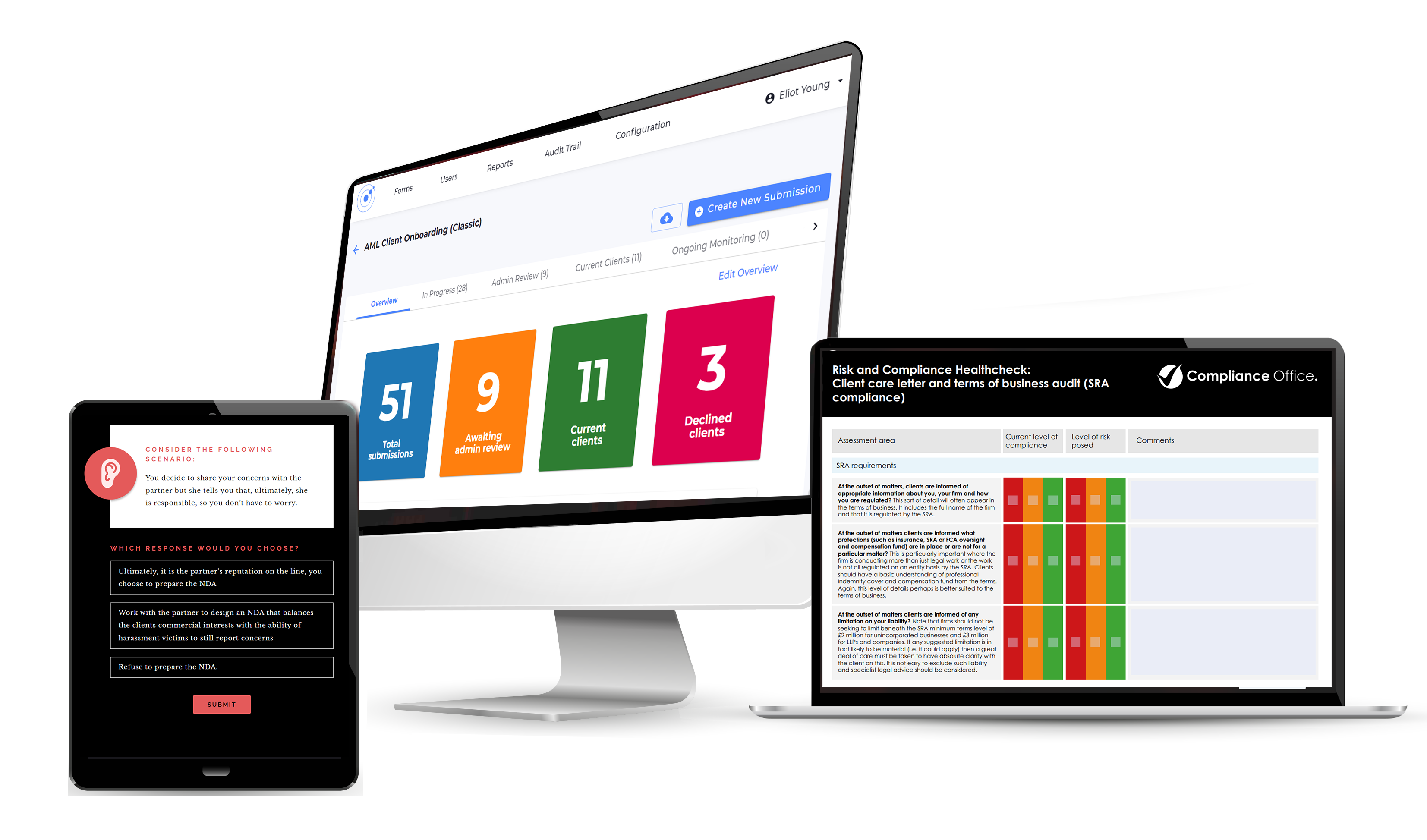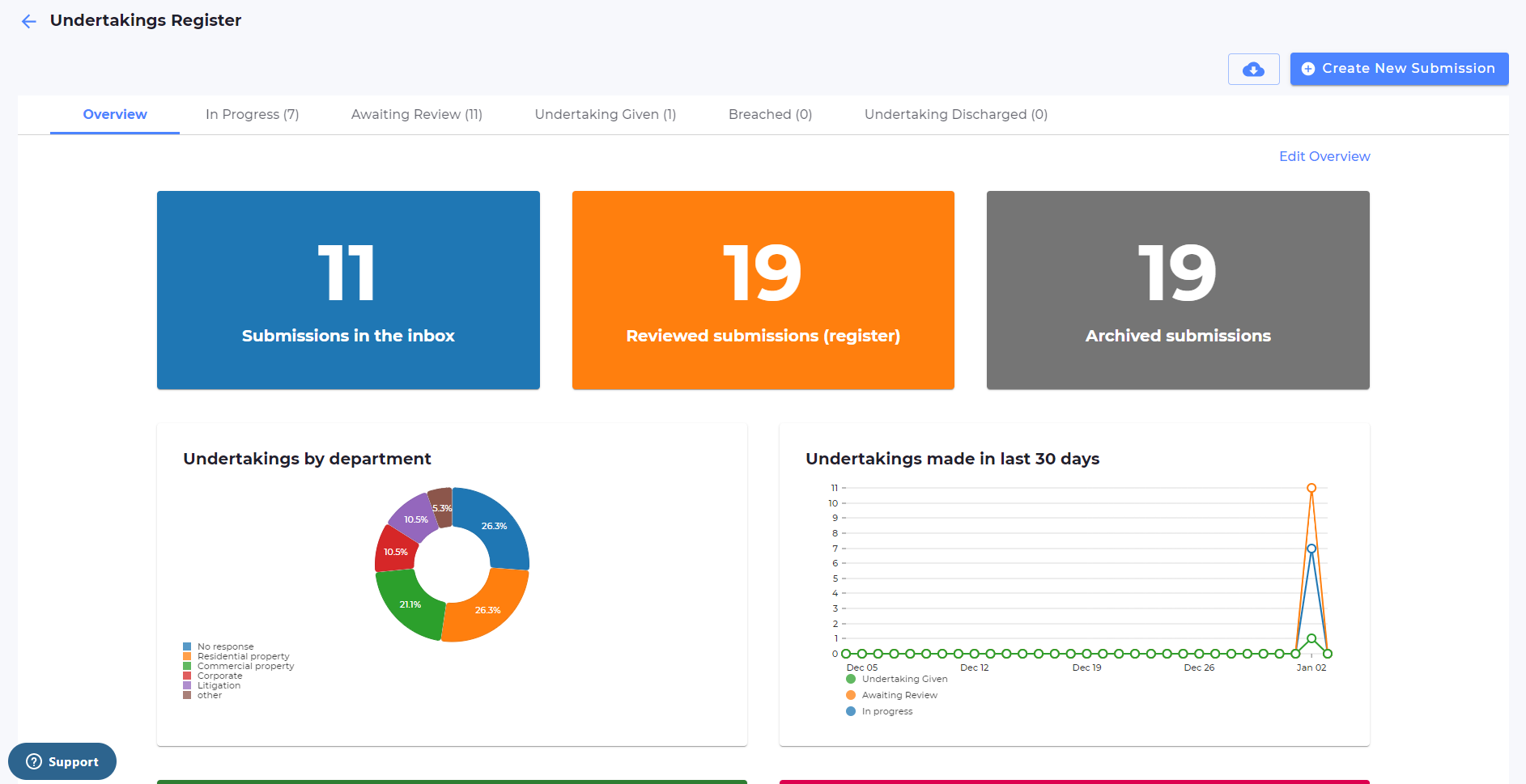
The SRA have released further guidance and rules over the last few months. In this blog, Compliance Office’s Andrew Donovan shares the key points.
Understanding SLAPPs (Strategic Lawsuits Against Public Participation)
With increasing public concern that some solicitors are using SLAPPs on behalf of their clients, the SRA has issued a warning notice that tells law firms not to act for clients in this way and outlines some of the activities they would consider to be abusive litigation. A ‘SLAPP’ typically refers to some sort of legal threat or action intended to stifle public commentary or publication. The concern is solicitors being hired to inappropriately threaten and scare people from speaking up.
Solicitors should only be labelling correspondence as ‘not for publication’, ‘strictly private and confidential’ and/or ‘without prejudice’ when the conditions for using those terms are fulfilled. The new guidance and warnings make clear that confidential markings cannot unilaterally impose a duty of privacy or confidentiality where one does not already exist. Similarly, making excessive or meritless claims or aggressive or intimidating threats will result in regulatory action. The SRA could not be much clearer that firms should not be hired simply to scare people off if there are no legitimate legal grounds to make any relevant claims or threats. The Bar Standards Board (BSB) is actually considering following the Solicitors Regulation Authority (SRA) in issuing guidance on strategic lawsuits against public participation (SLAPPs).
New SRA expectations for quality assurance and staff supervision
Findings from the SRA’s recent thematic review included the insight that firms need to have stronger evidence that supervision is taking place. Out of 76 files reviewed by the SRA, only 29 of them showed evidence of supervision taking place. Therefore, in their new guidance, the SRA has included a section on effective supervision that is applicable to all solicitors and firms that supervise individuals delivering legal services, including services that are provided by fee earners who are not directly regulated by the SRA.
The new guidance is sweeping with very significant implications for a lot of firms. It’s therefore slightly alarming that it seems to be largely going under the radar. I predict it being heavily referenced in future SRA disciplinary cases, especially for litigation and claims firms. The guidance stresses the following:
- Firms and lawyers remain “accountable” for the work of those they supervise – There is a duty to supervise. The rules arguably impose something akin to strict liability on managers.
- No one size fits all approach – An appropriate level of supervision will be determined by the risks involved in the work and the setup. Sadly, this does read somewhat like an invitation to the SRA to set a moveable set of expectations depending upon whether it likes what it sees or not. If the SRA disagrees with the firm about the ‘risks involved’ in the work then the changes are that it’s supervision arrangements will be found wanting.
- Direct supervision by qualified and experienced available individuals who have “clear oversight” of all key stages and can provide “robust assurance”. In particular, there are some potentially troublesome statements in this document, for the first time seeking to greatly restrict the extent to which unqualified individuals can handle litigation and claims work.
- Checks and balances to ensure supervision is effective in practice must be in place.
We encourage solicitors to take the time to read the new guidance.
How can VinciWorks help?
AML Onboarding and Ongoing Monitoring Solution
Omnitrack’s AML solution enhances both the risk assessment and document collection aspects of client onboarding. Our template workflows adapt to the specific risks posed by each client, based on factors such as jurisdiction, type of entity and industry. This allows you to make informed choices about each client using the risk-based approach. The flexibility of Omnitrack lets you choose the default workflow most appropriate to your business. The workflow can be customised to suit your own areas of practice and risk scoring system. Our team will guide you through every step of the process.
Consultancy Services
Founded by Andy Donovan, a former SRA legal policy advisor, Compliance Office’s team of consultants draws on years of experience and a proprietary set of tools and templates to help law firms with their compliance needs. VinciWorks recently partnered with Compliance Office to offer a full range of compliance training, software, and consultancy services. Compliance Office has many years of expertise in SRA conduct, money laundering and accounts rules, and keeps its pulse on the latest AML and SRA rules and requirements.
If you would like any guidance on anything SRA-related, fill out the contact form below.














